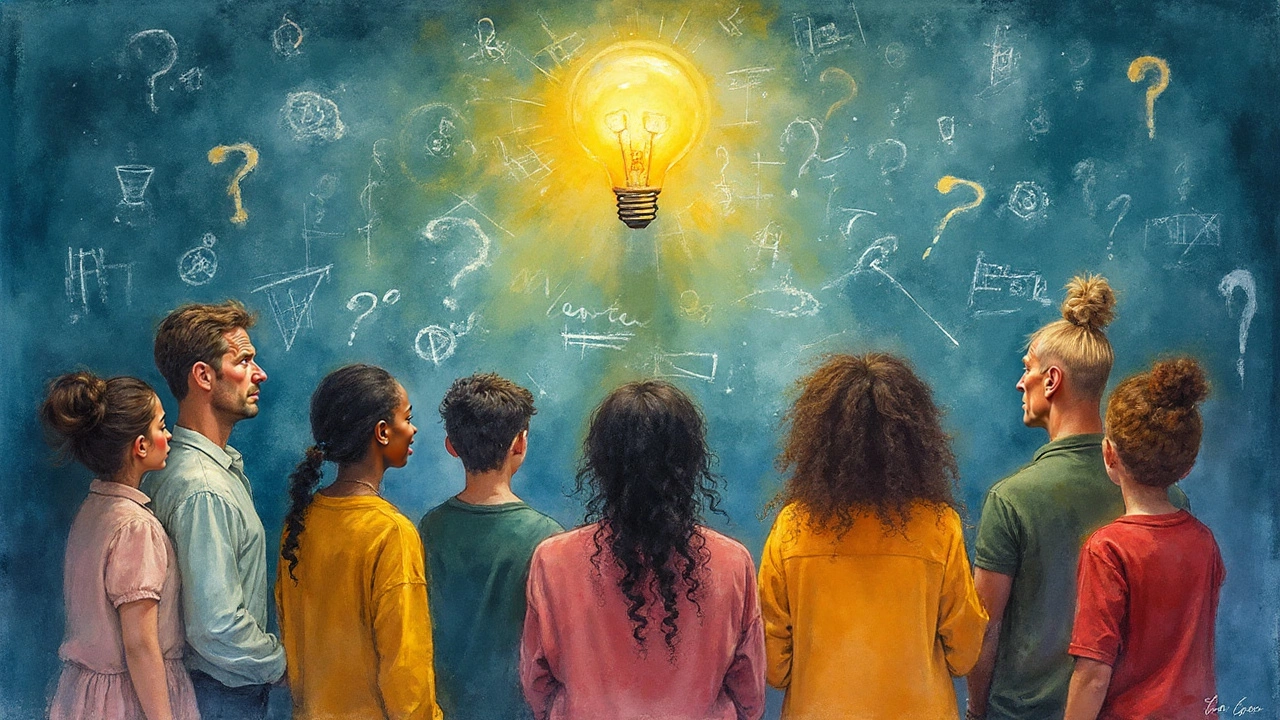Every family has at least one: the person who forgets the oven mitts are hot, week after week. Or the coworker who mangles the new printer controls again and again, despite the rest of the team patiently demonstrating. Some people, no matter how many lessons life throws at them, seem totally immune to learning. It isn't just annoying—it's mysterious. Why do some people never learn? And is there any real hope for change?
The Nature of Learning: How Our Brains Adapt (Or Don’t)
Let’s start by peeling back the mystery: at its core, learning means changing your mind, literally. When you learn, your brain physically rewires—neurons form new connections. This means that learning (whether it’s riding a bike, recognizing sarcasm, or not touching a hot hob) isn’t something you just decide to do. Your brain must be willing to adapt.
But sometimes, it just doesn't. Blame it partly on biology: some brains are more “plastic” than others, which means they’re naturally better at adapting and forming new circuits. Early life matters too. Studies at UCL have shown that adults who seldom challenged themselves in childhood find it harder to learn new things later on.
Habit forms the next brick in the learning wall. Every time you repeat an action without thinking, that pathway in your brain deepens, like a rut in a muddy track. After a few dozen repeats, the brain flags this behaviour as “safe” and prioritizes efficiency over caution. No wonder Uncle Brendan touches hot pans on autopilot: his brain literally shortcuts the warning.
Interestingly, stress can also freeze learning in its tracks. The University of Edinburgh tracked medical students through exams, finding those with chronic anxiety had up to 27% slower recall. Your mind can only adapt if it feels safe enough to try—and for some, that alarm bell never quite quiets down.
Mindsets That Block Growth
Let’s talk about mindsets. Carol Dweck’s famous research at Stanford cracked open the difference between a “fixed” and a “growth” mindset. Fixed mindset folks secretly believe intelligence and talent are set in stone—you’ve either got it or you don’t. So, when something’s hard (like, say, understanding a new Excel formula), why bother fighting the tide? It’s easy for the brain to just give up and blame its limits.
Contrast this with a growth mindset. People who think they can change—people who celebrate failing as part of learning—bounce back, tweak their strategy, and keep going. It doesn’t make them smarter, but it makes them more persistent. And persistence eventually wins out over natural talent, at least according to a 15-year study in Dublin schools published in 2022.
Unfortunately, a fixed mindset can be contagious. If all your friends sigh, “Numbers just aren’t my thing,” it feels normal to give up. Cultural beliefs play a role too; in some countries, mistakes are seen as shameful rather than just... life. This breeds fear, not curiosity.
- Fixed mindset: Learning feels threatening because of fear of failure.
- Growth mindset: Struggles are simply a step in the journey.
- People surrounded by others with fixed mindsets rarely challenge themselves.
- Cultural factors can amplify learning anxiety.
It’s easy to see how some people get stuck, circling the same learning potholes forever—especially if they believe it’s just the way they’re “wired.”

When Life Gets in the Way: Real-World Barriers
Forget the romantic idea of lifelong learning. In reality, adult life is a messy tangle of bills, work, loneliness, and sleepless nights. Even the most enthusiastic student can lose steam if they’re running on three hours of sleep and a leftover takeaway. Irish workplace training surveys from 2024 found that 61% of adults enrolled in evening classes dropped out because of time pressure or exhaustion, not lack of ability.
Anxiety, depression, and burnout are huge learning blockers. Neuroscience research from Trinity College Dublin has shown that high stress reduces the brain’s ability to absorb new information by suppressing hippocampal function—the very bit needed for learning. If your job is sucking the soul out of you, or you’re struggling at home, your capacity to learn anything new shrinks. Add in distractions like social media and the infinite scroll, and learning becomes that thing everyone “wants” to do—but never actually starts.
Technology, ironically, can backfire too. Ever tried to teach your parents to use WhatsApp? If they’re baffled, it’s not always because tech is hard. Sometimes, it’s fear—worry that clicking the wrong button will break everything. That little voice of “don’t make a fool of yourself” is much louder for adults than for kids, who’ll gleefully mash buttons until something works.
| Common Learning Barriers | Real-World Example | Percentage Affected |
|---|---|---|
| Time pressure | Working parents skipping evening classes | 61% |
| Fixed mindset | “I’m not a maths person” attitude | 45% |
| Stress/anxiety | Unable to focus during training | 38% |
| Outdated learning strategies | Highlighting textbooks vs. active recall | 32% |
How do successful learners get around this? It’s rarely about raw brainpower. They design their lives to make learning easy. They break tasks into tiny steps, reward progress, and ask for help when things get sticky. And—most importantly—they forgive themselves for mistakes.
Tips For Breaking the Cycle – Yes, It’s Possible!
If you’ve recognized yourself or someone you love in this world of never-learners, don’t panic. Humans are hardwired for adaptation, even after years of going through the motions. The why do some people never learn question has a silver lining: change is still possible if you create the right conditions.
Here’s what actually works for breaking the learning deadlock:
- Switch up the environment: Try learning in a cozy café instead of a noisy kitchen. Environmental cues can trigger new habits.
- Go micro: Don’t promise yourself a Spanish novel. Focus on one new word a day.
- Make it social: Few things cement memory like telling a friend what you’ve learned, or learning together. Accountability pushes you to show up again and again.
- Embrace mistakes: Next time you slip, call it a “plot twist,” not a disaster. Every error is feedback, not failure.
- Tune in to your best time: Some people absorb better at 7am, others at 10pm. Don’t follow the standard advice if it doesn’t suit your rhythms.
- Take breaks smartly: Cramming does not work, adults do best with short, spaced study. A real experiment in Dublin showed that adults who took a 10-minute break for every half hour of learning remembered 33% more after a week.
- Reset old stories: Ditch the idea that “I’m just bad at this.” Write down a new identity, like “I’m figuring this out.”
- Outsmart the rut: If you always fail at something, find a brand-new way to try. YouTube videos, podcasts, or trading lessons with someone else can unblock learning dead ends.
If you’re helping someone else, patience is your secret weapon. Going slow, breaking things into smaller pieces, and showing empathy for inevitable brain blocks all help open new learning pathways. The research backs it up again and again: the brain stays flexible far longer than we think—it just needs a friendly nudge.
The next time someone says, “I just can’t learn this,” remember: rarely is it about intelligence or laziness. It’s usually a mess of old habits, stress, mindset blocks, and the hard realities of modern life. But every brain can adapt—especially with a little self-kindness, a shift in perspective, and a dash of stubbornness.
